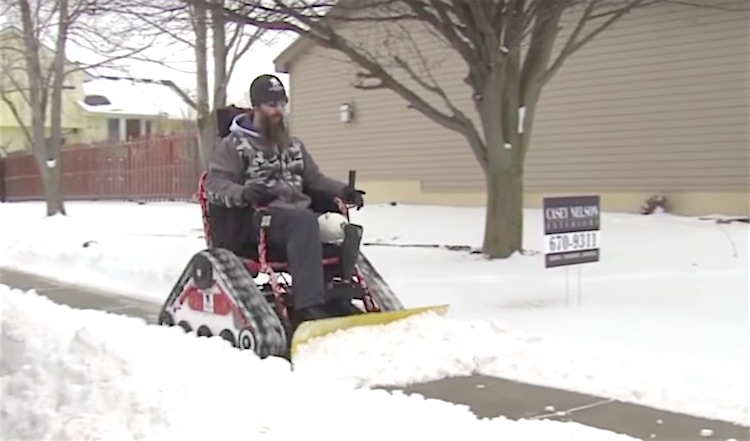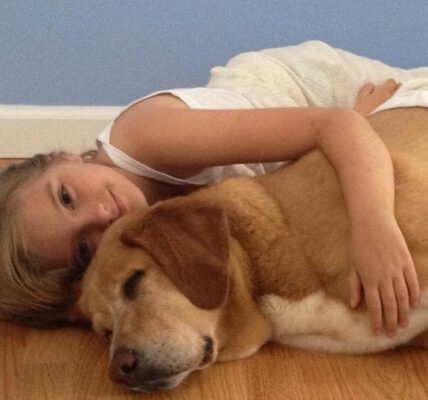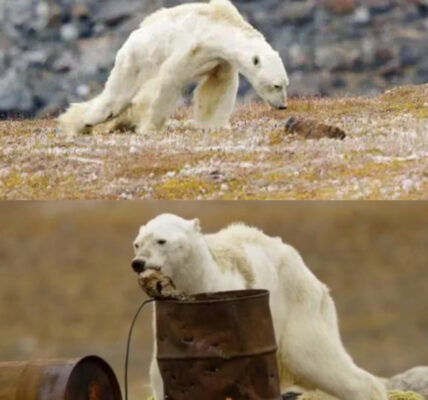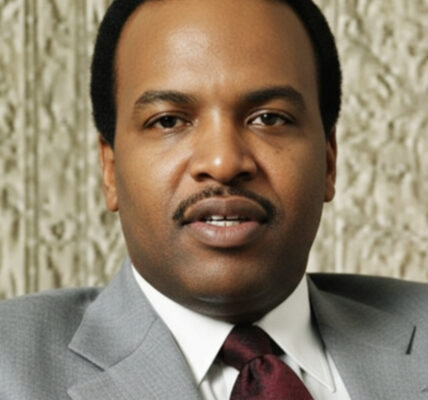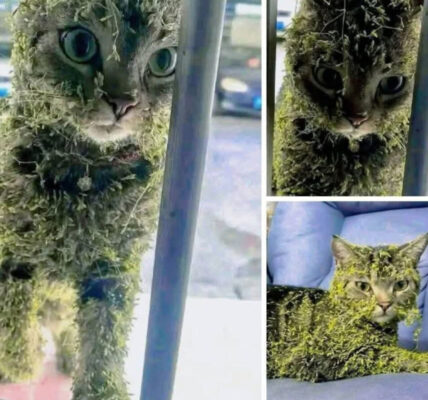In the heart of Nebraska, where winter storms blanket sidewalks with heavy snow and leave children trudging through icy paths on their way to school, one man has made it his mission to ensure no one in his community walks alone. His name is Brian Anderson — a one-legged Iraq War veteran whose story proves that resilience and kindness can carve a path even through the harshest winters.
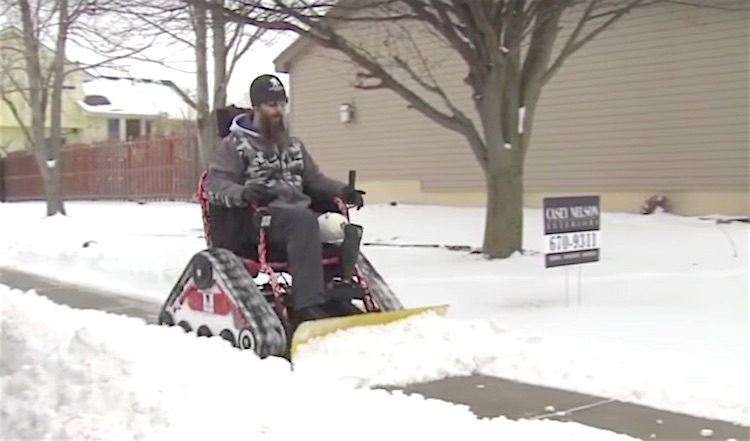
But Anderson’s tool of choice isn’t a shovel, nor is it a snow blower. It’s his wheelchair.
Not just any wheelchair.
The motorized machine, outfitted with tank treads instead of wheels, was originally designed for off-road adventure — to let him reclaim some of the outdoor freedoms he’d lost after returning home wounded. But Anderson had a bigger vision. Last year, he decided to turn it into something more than a mobility aid. He transformed it into an engine of goodwill.
He attached a snow blade to the front, rigging it so he could adjust the angle and height. Suddenly, what was once a symbol of limitation became a powerful snowplow, ready to tackle whatever storms Nebraska sent his way.
And tackle them, he does.
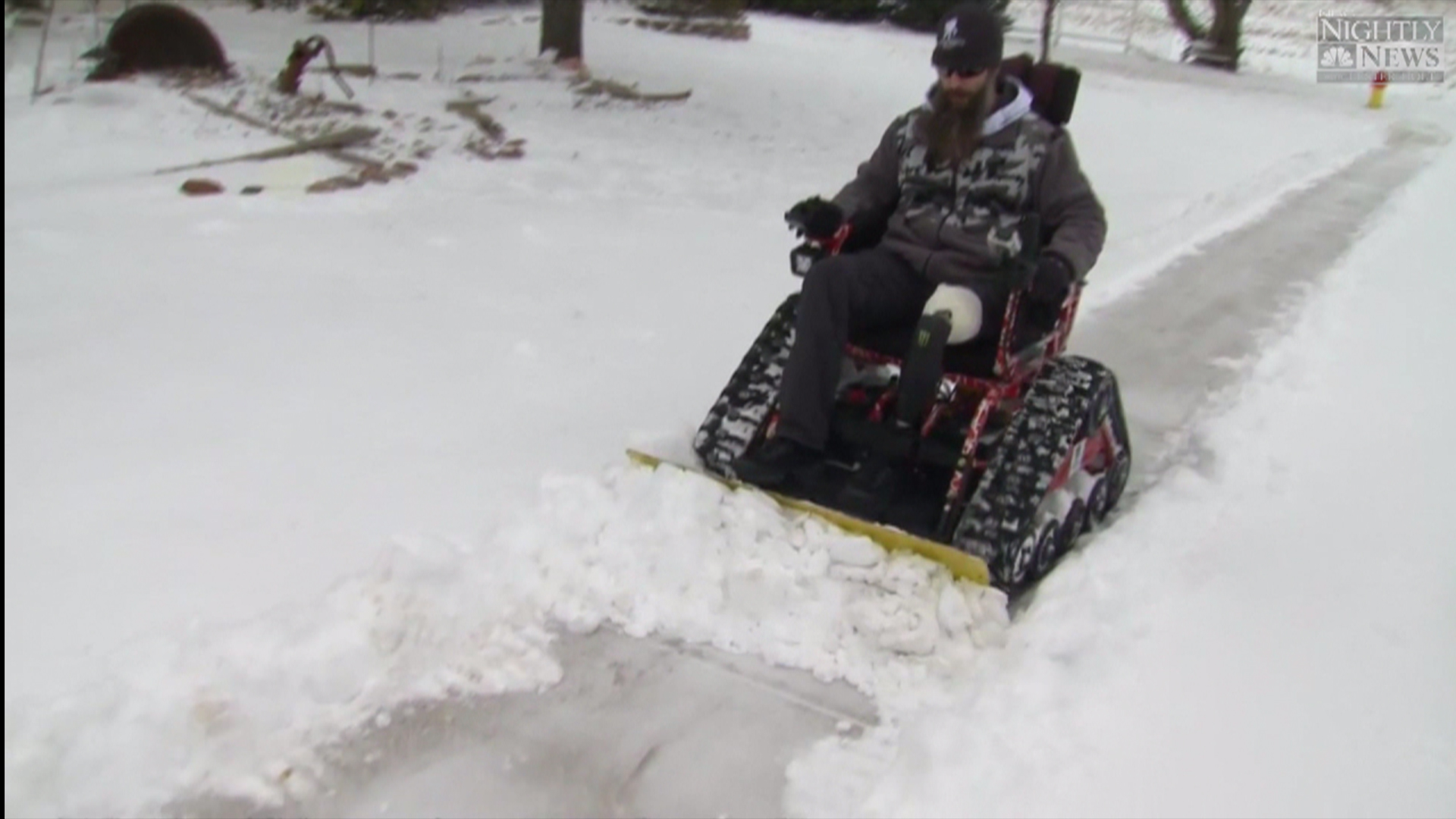
After a typical Omaha snowfall, it takes him only a couple of hours to clear a trail along the sidewalks leading to the local elementary school. Children who once trudged through knee-high drifts now walk safely along cleared paths, thanks to Anderson’s determination and his unlikely snowplow. Parents smile in gratitude, teachers nod in admiration, and neighbors marvel at the sight of a man who refuses to let injury define his limits.
Yet, if you ask him, Anderson doesn’t see himself as extraordinary. His easy-going nature is summed up in the personalized license plate on his pick-up truck: “HOPALONG.” He laughs at the nickname, brushes off praise as lightly as his snowplow brushes aside the slush, and insists that what he’s doing is no more than the right thing.
“It’s very gratifying,” he says with quiet humility. “This community has been there for me. Clearing sidewalks is just my way of giving back.”
And those words carry weight.
When Anderson returned home from Iraq, wounded and uncertain about the future, his community rallied around him. Neighbors offered meals, rides, and support. Schools sent letters of encouragement. Local groups raised money to help with medical expenses. To him, the sidewalks he clears now are more than concrete paths — they are living reminders of the people who helped carry him when he needed it most.
Every snowfall gives him another chance to say thank you. Another chance to pay forward the kindness that once lifted him. Another chance to turn a wheelchair — a symbol often associated with struggle — into a vehicle of empowerment, community, and hope.
In a world that can often feel divided, Anderson’s simple act stands as a reminder of what service really means. Service doesn’t end when the uniform comes off. For him, it continues with every pass of his snowplow, every trail carved in the snow, every child who walks safely to school because he cared enough to act.
Because sometimes, being a hero isn’t about what you’ve lost. It’s about what you choose to give.
And in the snowy streets of Nebraska, one veteran with one leg, a tank-tread wheelchair, and a heart full of gratitude continues to prove that even the harshest winters can be met with kindness — and that the paths we clear for others are the ones that truly matter.
